Niger
Several deadly attacks have struck Niger since the 26 July coup that toppled elected president Mohamed Bazoum, but analysts warn against hasty interpretation of the scant data available.
As soon as they came to power, the soldiers who overthrew President Bazoum cited a "deteriorating security situation" to justify their coup.
This perception is shared by some Nigeriens but seems to be contradicted by the statistics.
In the first six months of 2023, attacks on civilians were 49% lower than in the first six months of 2022, and the number of deaths 16% lower, according to the NGO Acled, which records the victims of conflicts around the world.
Western observers and partners, notably France, a privileged ally of the ousted regime which still has 1,500 troops in Niger, have highlighted these encouraging results.
This improvement is partly attributed to the strategy implemented by Mr Bazoum, the only one of its kind in the Sahel, to combat jihadist groups.
While the military regimes in neighbouring Mali and Burkina Faso are carrying out "anti-terrorist" operations that are accused of taking a heavy toll on civilian populations, Niger has opted for a policy of "extending a helping hand".
Peace agreements between communities, development projects, negotiations with leaders of armed groups... A strategy considered promising and appreciated by Western partners, but criticised in Niger, particularly within the army.
- Sense of insecurity -
The perception of security differs according to the context. According to an Afrobarometer survey conducted in June 2022, seven out of ten Nigeriens (72%) were satisfied with the security situation in their country.According to the survey, rural populations directly affected by the violence were much more satisfied than urban dwellers (78% versus 47%).
"Urban dwellers are more politicised, they have better access to information (...) And the higher the standard of living, the more importance is attached to safety and health issues", says Mahamane Tahirou Ali Backo, associate researcher at the Laboratoire d'Etudes et de recherches sur les dynamiques sociales et le développement local (Lasdel) in Niamey, who took part in the survey.The researcher also points out that the survey was not carried out in the so-called "red" zones, where the population is most directly affected, to guarantee the safety of the interviewers.
"The most well-documented attacks are those against the symbols of the State or large-scale attacks, but because of the circulation of arms and banditry, violence is almost a daily occurrence", explains this researcher, one of the few who has recently been able to gain access to these areas where jihadist groups are active, on the fringes of Niger, Mali and Burkina Faso.
Furthermore, the number of attacks and victims does not necessarily reflect the feeling of insecurity fostered by the jihadist groups, who exercise a form of indirect control, sometimes a long way from their bases.
"If there is less visible violence, that doesn't necessarily mean that people are living better. Taxes are still being levied, and even though the number of attacks is falling, the influence of armed groups is spreading within Niger", says Tatiana Smirnova, a researcher at the Franco Paix Centre for Conflict Resolution.
- Closed schools -
The jihadists "are not seeking to take official power, but are exercising a form of indirect government and social control over vast areas", explains Jean Pierre Olivier de Sardan, Emeritus Director of Research at the CNRS and researcher at Lasdel.This influence is reflected in the closure of primary and secondary schools in the Sahel.According to a report by the United Nations Children's Fund (UNICEF), around 890 schools were closed in August 2022 because of insecurity in the four regions of Niger most affected by the attacks, including Tillabéri.In May 2023, the Niger Ministry of Education reported that more than 900 schools were no longer in operation in the Tillabéri region alone.
Peace agreements between communities have led to a significant drop in violence in some areas, according to analysts and available statistics, but other areas have seen a resurgence of incidents.
The jihadists are grafting themselves onto local conflicts, the diversity of which makes it difficult to establish an overall trend.
From one department to another, "the dynamics, groups and conflicts are not the same", warns Tahirou Ali Bako. "Seen from the outside, people tend to standardise situations, but they are not homogeneous", he adds.



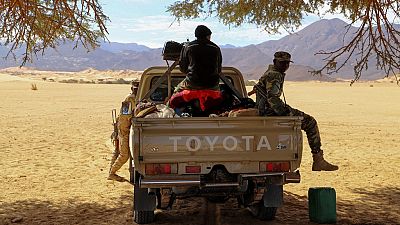



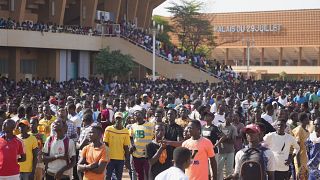
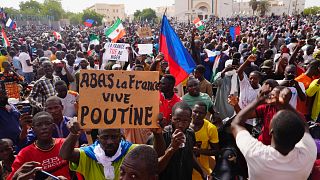
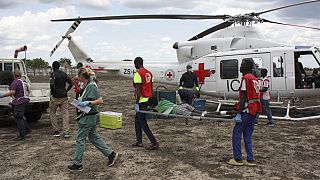
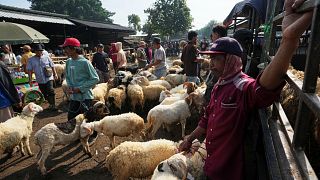


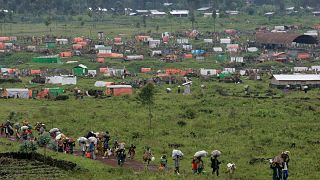
01:13
17 soldiers killed as gunmen raid army bases in northern Nigeria
01:15
Kenya court sentences two to jail terms for aiding 2019 hotel attackk
01:03
Kenyan court finds two men guilty of facilitating 2019 hotel terrorist attack
Go to video
France: Family of mosque murder victim want case treated as terrorism
Go to video
Benin says 54 soldiers killed in Islamic militant attack
Go to video
Burkina Faso military government says it thwarted "major" coup attempt